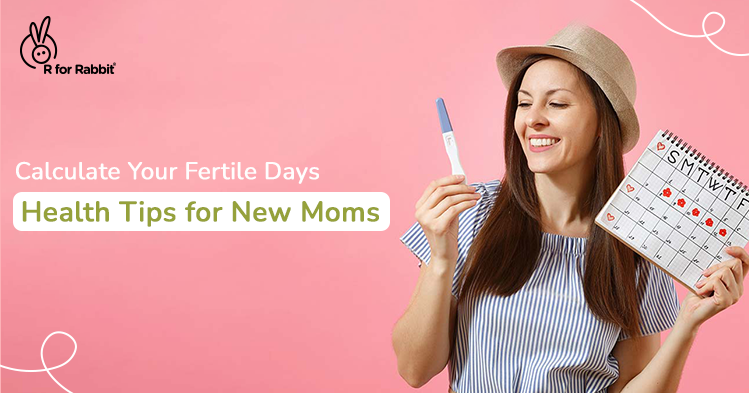Optimal Timing: When Is the Best Time to Get Pregnant?

The pregnancy news leaves everyone thrilled, anxious, and eager for the newborn!
Although for a few pregnancies, it might be effortless, understanding the process of self-ovulation could help a lot in receiving a “positive” in the pregnancy test.
Pregnancy involves menstruation, which includes four diagnostic criteria. Let us understand in detail.
Understanding Menstrual Cycle
This is an important step to understand how to calculate fertile days to get pregnant. It consists of four stages
|
Phase |
Duration |
Key Process |
Hormonal Activity |
|
Follicular Phase |
Day 1 to Day 13 |
From the first day of menstruation, signals from the pituitary gland stimulate the ovaries to release an egg. |
Estrogen increases; LHH levels rise signaling ovulation is near. |
|
Ovulation |
Day 14 (In 28- day cycle) |
Fertilization occurs when sperm meets the egg, typically within 12 to 24 hours post-ovulation. It is fertilized, and the egg attaches to the uterus lining. |
The surge in LH and estrogen triggers ovulation. |
|
Luteal Phase |
Day 15 to Day 28 |
After ovulation, the corpus luteum releases progesterone, thickening the uterine lining for potential pregnancy. |
Progesterone rises to support the lining of the uterus for possible pregnancy. |
|
Conception |
Occurs during ovulation |
This simply means the attachment of the fertilized egg to the uterus lining. |
No specific hormonal surge but progesterone maintains the uterine lining. |
Also, in the case of an irregular menstrual cycle, there are various other ways to calculate ovulation or the best time in the menstrual cycle to conceive.
Identifying the Fertile Window
Before you and your partner get into family planning, it is very crucial to understand the important concepts of the fertile window, its calculation, and also various essential tools and methods to track it.
What is a fertile window?
This defines the best time to conceive, which is roughly six days, accounting for the sperm’s lifespan of about five days and one day after ovulation.
However, to pinpoint the exact days or dates of ovulation, it is essential to know the average length of the menstrual cycle.
How to calculate your fertile days to get pregnant?
|
Cycle Type |
Cycle Length |
Ovulation Date (Approx) (Avg cycle length -14) |
Fertile Period (Approx) |
|
Average Cycle |
28 days |
Day 14 |
Day 9 - Day 14 |
|
Minimum Cycle |
21 days |
Day 7 |
Day 2 - Day 7 |
|
Maximum Cycle |
35 days |
Day 21 |
Day 16- Day 21 |
Tools and methods to track ovulation
There are also various tools and methods to understand what is the best time to get pregnant.
These tools are very handy, especially in times of rising cases of PCOD and PCOS, which lead to irregular menstrual cycles. Some of the popular methods involve:
I. Basal Body Temperature
This involves measuring the rise of the body temperature before ovulation due to the increase in the luteinizing hormones in the body.
Monitoring the rise of temperature every day before leaving the bed in the morning could help you analyze your real body temperature changes.
I. Cervical Mucous Monitoring
The cervical mucus can be categorized into two phases, that is:
A. Pre-Ovulation: Ideal Environment
In this stage, the mucus is wet, clear, and slippery. In short, it resembles the egg white, providing a hospitable environment for the sperm to move towards the uterus. It also creates a habitable ambiance for the sperm’s survival.
B. Post-Ovulation: Non-Ideal Environment
The mucus during this time is thicker and hinders the easy movement of sperm inside the uterus. It is considered less sperm friendly and begins the luteal phase.
III. Ovulation prediction kit
These factors help to indicate the presence of luteinizing hormone in a woman’s body, indicating ovulation.
It also helps with day-to-day guidance and tracking of the ovulation state by depicting differing visible results and real-time tracking to assess the optimum fertile window to conceive.
IV. Fertility Apps
These apps use the most holistic understanding of an individual’s menstrual cycle with the help of the algorithm that helps in determining the BBT, cervical mucous, mood swings, specific symptoms, fertile window, etc.
Sometimes, the independent symptoms might differ, but an integration of all such tools and methods increases the accuracy and authenticity of fertility apps.
Factors Affecting Fertility
Many factors impact fertility in humans. This might range from age, diet, and habits to certain health conditions. Let us understand each other in detail.
Age and its impact on fertility
Females are born with almost 1 to 2 million eggs, which are reduced with growing age, diet, and habits.
The peak period for pregnancy among women is from age 25 to 35 years after which it begins declining. On the other hand, the fertility in men starts decreasing between ages 40 and 45 years.
One of the reasons for this is the growing age which reduces the efficiency and quantity of healthy sperm produced. Other factors include decreased hormone testosterone, sperm shrinkage, weakness, and so on.
Risks Associated With Late Pregnancy
While pregnancy is a beautiful journey, there are some risks associated with late pregnancy. This includes:
-
Miscarriages or genetic abnormalities
-
Decreased chance of pregnancy
-
Increase in the timing of conception
-
Fetal mortality
-
Preeclampsia
-
Challenging labor
Lifestyle factors influencing conception
Lifestyle is one of the most important factors in determining the chances of pregnancy.
A healthy lifestyle includes regular wake times, exercise, a healthy diet, etc which creates a healthy biological clock and promotes a healthy hormonal cycle.
However, if the lifestyle comprises smoking, drinking, and eating junk food with no workout schedule, or no proper routine, then it is a red flag for confirming a conception.
This applies to both men and women. Also, a significant lack of nutrition during pregnancy in women might lead to improper fetal development or pregnancy complications in the future.
Also, the added stress in today’s time is an extra factor that interferes with a healthy menstrual cycle and ovulation phase in females.
Health conditions that may affect fertility
Some common health factors that impact fertility include:
-
PCOS—It stands for Polycystic Ovary Syndrome (PCOS). The occurrence is because of a hormonal imbalance that prevents the mature egg from reaching the uterus in time. This thus ends up causing irregular menstrual cycles, ovulation, periods, and conception issues.
-
Endometriosis—This includes mimicking the tissue of the uterus lining outside the uterus. It might cause swelling, scarring, and also very painful periods. In serious cases, it might also cause a closed fallopian tube, decreased egg quality, and various implantation and conceiving issues.
-
Thyroid—This causes hormonal imbalance, which further causes various irregularities in the menstrual cycle, quality of the eggs, and also PCOS/PCOD, etc. This destabilizes the overall functioning of a healthy period cycle.
-
Overweight/underweight—Both are dangerous to obtain a healthier menstrual cycle as both are responsible for causing various chronic diseases. Also, the risk of anemia could prove detrimental in case of underweight pregnancy.
Tips to Enhance Conception Chances
Although conception is a tricky process, various tips can help you understand which is the best time to get pregnant.
Timing intercourse for optimal fertility
Track the ovulation regularly while nearing the date of ovulation with an ovulation predictor kit.
Also, ensure maximum physical intimacy for five days before ovulation and a day after ovulation to enhance the chances of pregnancy. However, remember not to overdo it, as an increase in stress also reduces sperm and egg quality.
Tip: You can also increase your chances of pregnancy by raising your legs upwards for some time to prevent the sperm from slipping outside the uterus.
Diet and nutrition recommendations
It is recommended to intake the essential nutrients that help in the overall development and sustenance of pregnancy for both men and women.
|
Nutrients |
Benefits |
|
Folic Acid |
Decreases the chances of fetal defects and supports its healthy development. |
|
Antioxidant-Rich Foods |
It protects eggs and sperm from cellular damage, thereby improving their health. |
|
Healthy Fats (Omega-3) |
Regulates hormones and supports egg quality and reproductive health. |
|
Zinc (for Men) |
Enhances sperm production and motility. Also, improves male fertility. |
|
Complex Carbohydrates |
Helps maintain blood sugar levels and hormone balance. It also reduces insulin resistance. |
|
Hydration |
It ensures that healthy cervical fluid which transitions smooth transfer of sperm to the egg. |
Importance of maintaining a healthy lifestyle
A healthy lifestyle contributes to a healthy mind and body that accelerates the smooth functioning of daily living.
Also, in today’s time, physical activeness and mental calmness confirm and enhance the chances of pregnancy.
A few tips that might prove helpful are:
-
Work out for at least 20 minutes a day.
-
Engage in meditation or deep breathing regularly.
-
Always opt for a nutrition-rich diet.
-
Limit the amount of caffeine, alcohol, smoking, fast foods, etc.
When to Seek Professional Advice
A lot of precautions and habitual changes can be beneficial in determining a healthy pregnancy.
However, the time to seek professional health advice should be known to pre-diagnose any potential pregnancy risks or symptoms.
In case nothing seems to work, or depending upon the individual’s experience, you can always go for in vitro fertilization (IVF). This increases the chances of pregnancy due to their meticulous tracking of the average menstrual cycle, date of conception, etc.
Conclusion
The best time to get pregnant after periods can be decided by family planning, followed by ovulation tracking, proper diet, and nutrition.
These not only prepare you for a normal pregnancy but also predict future results. Pregnancy is a responsibility, and therefore, no stone must be left unturned to prove success.
Also, if you want to know about your pregnancy or its stages, you can try tools like pregnancy quiz, period calculator, and due-date calculator for added confirmation.
Lastly, monitor your menstrual cycle, watch your ovulation, and fertile window, eat nutritious food, and drink plenty of water for that “positive” prego talk!
Also Read:
How Climate Change Affects Your Pregnancy Journey?
How to Sleep Better at Night During Pregnancy?








